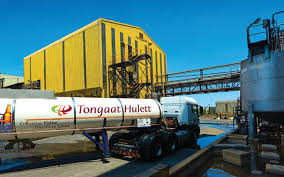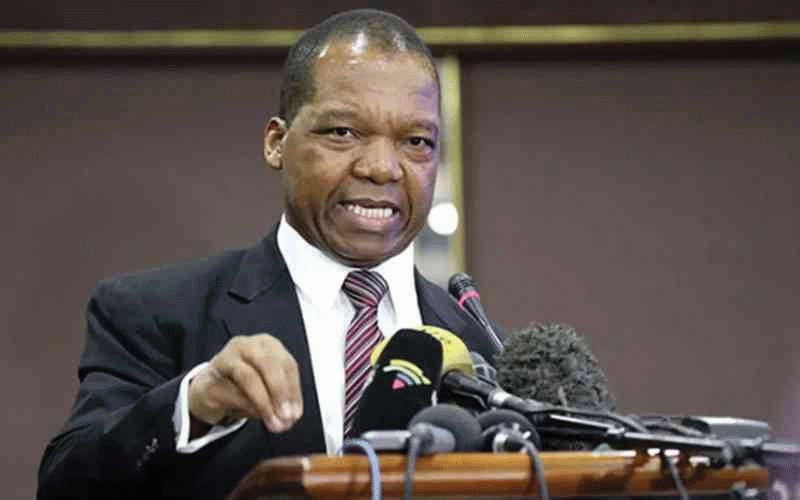
A MULTI-MILLION-DOLLAR food supply contract awarded to Agrifora Private Limited for the country’s security services, including the Zimbabwe National Army, Zimbabwe Republic Police (ZRP), and Zimbabwe Prisons and Correctional Services, has stirred fresh debate over state procurement practices, amid lingering governance and opacity concerns.
The deal, which bypassed a competitive tender process, has drawn sharp criticism from transparency advocates who accuse the government of sidestepping due diligence in favour of political expediency.
However, despite questions over how the contract was awarded, officials across Zimbabwe’s security sector say the company has significantly improved food supplies and slashed costs, restoring morale among the tens of thousands in the security services.
Sources familiar with the procurement say Agrifora was allegedly handpicked, raising red flags in a country which has been dogged by tender scandals across public sectors.
However, insiders assert that the decision was driven by an urgent need to stabilise deteriorating conditions in military and police institutions, where acute food shortages had become a national embarrassment.
The crisis dates decades back. In 2022, Defence minister Oppah Muchinguri-Kashiri publicly admitted that Zimbabwe’s defence readiness had been compromised by basic supply gaps.
“We are expected to host other defence forces, but no one wants to come here because of these conditions,” she said during budget consultations with Finance minister Mthuli Ncube.
In response, President Emmerson Mnangagwa’s administration centralised the procurement process, tapping Agrifora as the major supplier to the uniformed forces.
- Mr President, you missed the opportunity to be the veritable voice of conscience
- ED to commission new-look border post
- Zanu PF ready for congress
- EU slams Zim over delayed reforms
Keep Reading
According to senior officials, the move has yielded immediate benefits: reliable deliveries, reduced prices, and greater food variety.
“Mnangagwa's government has improved the food situation to the extent that the security sector is now enjoying three-course meals,” a senior security official told the Zimbabwe Independent this week.
“Commercial beef was going for US$11 per kg, now it’s down to US$3,50. Chicken is being delivered at US$3,40 per kg.
“They’re now eating sausages, liver, eggs — not just beans and cabbages. This has restored harmony within the forces.”
The company’s logistical model, which includes direct-to-barracks delivery to prevent pilferage and corruption, has been credited with eliminating long-standing graft networks that once dominated food procurement, top security officials said.
“This is the first time in years that food is arriving on time, in full, and at better prices. The rot is being cleaned out. Agrifora has been operating transparently and efficiently, delivering actual food and not overpricing,” another senior government official said.
“Agrifora may not have gone through a traditional tender process, but this was a necessary reform. It’s not perfect — but it worked.
“Agrifora was a necessary reform to eliminate corruption and improve the welfare of the security forces. This was done to cut the corruption umbilical cord but there remains a section in government that is not happy.”
Justice, Legal and Parliamentary Affairs minister Ziyambi Ziyambi acknowledged the improved conditions in prisons but declined to provide detailed comment, instead deferring to correctional authorities.
“Talk to the minister, who oversees that. If I am outside Parliament, I can’t speak on that. If you speak to the Commissioner General [Moses Chihobvu], he will confirm how happy the prisoners are. Prisoners are getting food from the President,” Ziyambi said.
“If you talk to him he will tell you, so I have to allow them to comment and they will confirm. Even the improvements that happened at Christmas, they were happy because they had a good Christmas. So, talk to Mr Chihobvu.”
The ZRP also confirmed improved welfare under Commissioner General Stephen Mutamba, though spokesperson Paul Nyathi declined to name the suppliers.
“In a nutshell, speaking on behalf of the Zimbabwe Republic Police, since January when Commissioner General Stephen Mutamba took over, one of the issues he worked to address was the welfare of officers,” he said.
“That’s why I might not talk of companies, which are supplying rations to the police. But I can conclusively talk about the efforts being done by the government in availing rations to the police, in terms of welfare, and in terms of motivating the officers so that they focus on their policing responsibilities.
“So, we want to thank the government for that, and it’s not only in terms of rations, to be honest, but even vehicles,” he added.
Civil society organisations have called for independent oversight to ensure long-term accountability, particularly given the opacity surrounding the awarding of the contract.
While acknowledging the improved welfare of service members, advocacy groups remain wary of unchecked procurement practices becoming the norm.
“There’s no denying the food situation has improved,” one watchdog group noted. “But the process still matters. Today it’s food; tomorrow it could be arms. Public procurement must be transparent, regardless of urgency.”
The Zimbabwe Defence Forces declined to comment.
However, insiders say morale has improved, with routine meals and cleaner procurement systems replacing the uncertainty that once defined daily life in barracks.
Agrifora was not available for a comment by the time of going to print.











